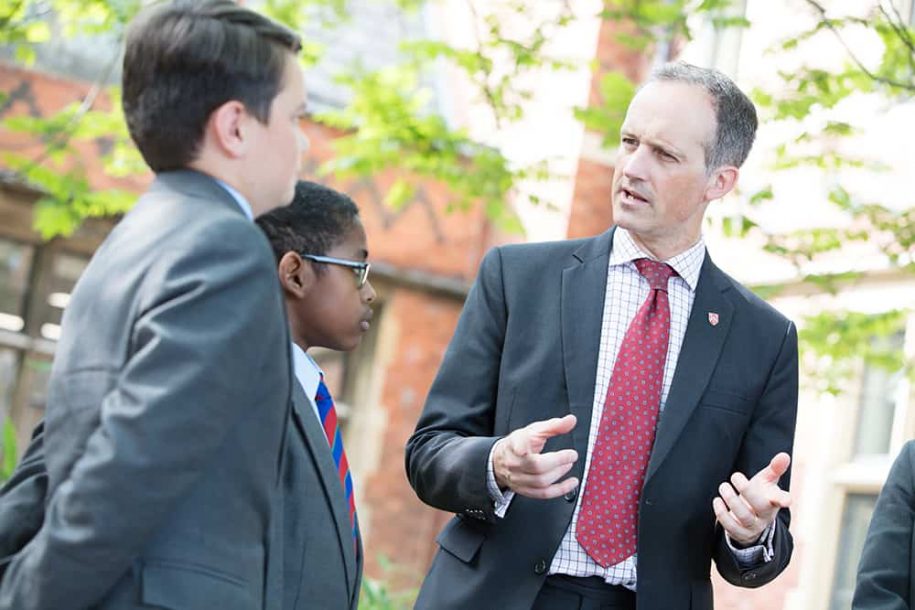To IGCSE or not to IGCSE

<strong>To IGCSE or not to IGCSE</strong>
<strong> </strong>You may or may not be aware that boys at Loughborough Grammar School sit both GCSEs and IGCSEs in Year 11. The IGCSE is not an Apple product; the ‘I’ stands for ‘International’ as this was an exam originally created for the large number of schools across the world that follow a typical British curriculum. During the last fortnight, there have been criticisms in the press of the IGCSE with one media-savvy Headmaster claiming that it is ‘easier’ than the mainstream GCSE qualification. Can it be true that LGS is peddling substandard exams?
I should start by explaining why LGS, in common with most independent schools has chosen the IGCSE in several subjects. Quite simply, we felt that the previous GCSE lacked challenge in many subject areas and gave pupils insufficient grounding for A Level. The vast majority of LGS boys proceed to A Level, so our priority wasn’t to choose the ‘easiest’ qualifications but to choose the ‘best’ foundations for further study. An added attraction was the absence of ‘controlled assessment’, which had replaced coursework. Pupils nationally were required to spend weeks undertaking controlled assessments in class under test conditions. Most independent schools preferred IGCSEs because they focused on the examinations to assess pupils, allowing class time to be used for teaching not testing. 5-10 years ago, there was no questions that IGCSEs were harder, <u>but</u> better preparation for A Level.
Michael Gove, the infamous former Secretary of State for Education, recognized the weakness of GCSE, and was determined to get rid of the ludicrous controlled assessment and to make the examinations harder. For the new GCSEs, most of which have been examined for the first time in the Summer of 2018, significant changes to subject syllabi have addressed these weaknesses, providing better foundations for future study. As a consequence, many subjects at LGS have moved back to the GCSE qualifications as they are now at a similar level to the international version.
However, this is where politics comes in. While previously all schools were able to choose whichever qualifications they wished, the Government banned maintained schools from using the IGCSE once the new GCSEs were introduced. The political imperative is simple to understand. The new GCSEs are ‘better’, therefore the alternative IGCSE can no longer be tolerated. Politicians wanted the public to know that they had solved the problem of ‘easy’ exams. This is why LGS (and other independent schools) appear at the bottom of Government league tables, which do not count GCSEs. To reinforce their political point, IGCSEs therefore must be inferior. This, however, is political posturing not the truth. If you asked our Year 11 boys which was the toughest exam they took this summer, the majority would answer ‘IGCSE Mathematics’. And LGS is a school where Maths is boys’ strongest subject – 57 boys achieved A/A* at A Level last year!
The spat in the press has been initiated by the Headmaster of Brighton College, Mr Richard Cairns. His school has decided to move over to the new GCSE in all subjects, in comparison to LGS which has let subjects choose the syllabus that best supports their students’ further study. You may have read a great deal about Brighton College in the press as Mr Cairns is extremely media-savvy. His is a very good school, and he has a strong reputation as a Headmaster, but his words are also highly political as he seeks column inches for his school. He has jumped onto the Government’s bandwagon insisting on the quality of the new GCSE, in order to create explicit criticism of Brighton College’s independent school competitors who, like LGS, are using a mixed economy of qualifications.
The Headmasters’ and Headmistresses’ Conference (HMC), of which LGS is a member, has responded by quoting evidence that IGCSE is at least as difficult as the mainstream GCSE, but evidence can sometimes get lost in the headlines, and I am sure that Mr Cairns is enjoying the publicity for his school. I can reassure any worried parents that universities believe in the equivalence of GCSE and IGCSE, so there is no consequence for our boys in being pawns in this argument. Nevertheless, LGS will monitor the currency of the new GCSE extremely closely. As I have alluded to before, we will look extremely carefully at how the new numerical GCSE grades are being awarded. Any evidence that a particular syllabus is easier will drive us away from it. It is very important that our boys’ qualifications are considered the gold standard, so that they will have a competitive advantage for university applications and on their future CVs.
